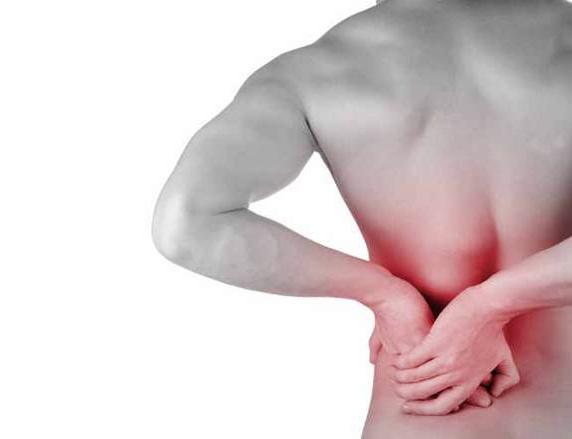Many women are concerned about pregnancy massage and it’s implications on pregnancy and birth. As a woman’s body changes, shifts and adapts during all stages of pregnancy, there are obviously lots of physical symptoms that need to be addressed and this sometimes requires the help of a therapist to get a Mum to be out of pain. Even before pregnancy there can be concerns around whether or not bodywork is appropriate if you are trying to conceive and plan for a baby. There are many questions and myths out there and pregnancy is one of those topics that EVERYONE has an opinion on. So here we will look at some of the science around pregnancy and bodywork to try and clarify concerns surrounding pregnancy and massage.
Conception
So you’ve decided to try for your baby. First or subsequent attempts at falling pregnant are a time where would be parents can be involved in meticulous planning and careful preparation to do everything possible for a successful conception. Others are just lucky and BOOM - “hey Mum I’m pregnant”. There are so many variables around conception that contribute to its success that it is hard to determine exactly what you should and shouldn’t do. Conception happens or it doesn’t. We can manipulate hormones, plan for conception windows and optimal timings and create the best possible chances of pregnancy being successful .
Thankfully massage can help with this. Massage can help to relieve stress and promote calm which is ultimately necessary for a woman to be at her optimal best for conception. Massage is one of the techniques along with yoga, meditation or calming exercise that helps to promote feel good neurotransmitters that make an optimal state for conception. This accompanied with a decrease in cortisol levels is a great way to ensure that a woman is in a the best balanced state for a natural conception. Whilst having a massage does NOT have any scientific based evidence to support a successful pregnancy, this factor helps create the best homeostasis that can assist with a successful conception. (University of Miami School of Medicine)
Even if you are trying for your first baby, massage - even deep tissue massage is not linked to making your chances better or worse for conception or a successful first trimester. Although blood volume levels do rise in the first few weeks after gestation, massage work does not have a significant impact on these volume levels at the conception stage. According to the World Anaesthesia & the World Federation of Societies of Anaesthesiologists, “blood volume increases progressively from 6-8 weeks gestation and reaches a maximum at approximately 32-34 weeks with little change thereafter.”
First Trimester
One of the big fears with massage and pregnancy is massage during the first trimester. The risk of miscarriage is greatest during this period and so many mum’s will be acutely aware and cautious about any acitivities that could jeopardise the chances of a pregnancy going full term. With the development of organs occuring during this period there is a high chance that many factors can influence and determine the successful development of the embyro on it’s path to being a little human.
Many therapists will recommend not to have bodywork during this period as the risk of miscarriage is so great and the risk of liability is too high. No-one wants to be that person that may have contributed to a miscarriage. However there is “NO research has been done to show a link between a massage and a miscarriage”.. (Traci C Johnson MD - WebMD 2019) Women who have had issues conceiving before or may have conditions such as placental abruption or a disposition to preterm labour, even aggressive morning sickness, nausea and vomiting would be best placed to consult a doctor before investigating any massage or bodywork.
Even IVF institutions have recommended that massage is safe during your pregnancy and in the early stages. Whilst you should avoid deep massage during your stimulation period of the IVF process due to the risk imposed by over enlarged ovaries, massage is not considered a contraindication to conception. (Reproductive Medicine Associates of Connecticut)
During Pregnancy
Once the first trimester is passed, the risk of miscarriage drops distinctly and massage becomes a valuable part of keeping the body in good condition an adapting to changes in gait, posture and a shifting centre of weight. Increased urination, back pain, tiredness, swelling in the lower limbs, leg cramps and restless legs are all issues that occur during pregnancy. Massage and bodywork can help alleviate these symptoms and safely work on the system to downgrade much of the discomfort that is a result of these conditions.
Deep work is often avoided in pregnancy for a very specific purpose. Blood volume rises gradually over pregnancy and due to this increase, deep massage is not advised due to the risk posed of blood clots being dislodged particularly in the legs. Because blood volume almost doubles during pregnancy, it's also best to avoid getting a deep tissue massage or any other type of strong massage . Blood flow to the legs often becomes sluggish and the levels of anticoagulants in the blood, designed to prevent haemorrage during delivery naturally rises so deep work here may be detrimental. Instead most authorities advise lighter and circulatory style work to the extremeties to assist with not only blood flow but lymphatic flow that helps with swelling and moving fluid through the limbs.
Pressure points are another point of concern and there are points that are advised not to treat during a pregnancy as these can illicit contractions. Most of these points are located in the wrist, hands and ankles. Whilst direct palpation of these points rarely is deep enough to trigger contractions, there is still caution associated with certain points due to the nature of their behaviour on palpation
Sp6 - superior to the medial malleolus of the ankle. Increases circulation to the uterus
BL60 - lateral ankle superior to lateral malleolus. Used to open up the lower back and create movement. Can be detrimental to a pregnancy as lower back needs to be strong and stable.
GB21 - Mid upper trapezius in the shoulders. Often used for neck relief. Has a regulating effect on the pelvic floor and can create weakness in this location. Can actually be beneficial if there is too much tension in the pelvis for a pregnant woman.
LI4 - Located at base of thumb. Often used for headache relief. General effect of ‘getting things moving’ so has a direct relationship to flow and inducing labour.
All of these points can be beneficial to a pregnancy at the right stage or when the right diagnosis requires more movement or stability. It doesn’t mean bodywork should avoid these areas completely as it does require specific and sustained palpation to activate these points. But if there is a history of miscarriage or premature labour then being aware of these points can help in being informed and aware of treatments or bodywork.
Oils and lotions
There is much talk in alternative and natural medicine about the use of oils and essential oils during pregnancy. Some essential oils do have an association with certain physical responses (such as uterine contractions) and whilst debate may still rage about the effectiveness of essential oils in medical application, the debate is clear when it comes to the risk of pregnancy. International Federation of Professional Aromatherapists in the UK notes in its Pregnancy Guidelines, “essential oils by their very nature, being organic substances, will cross the placental barrier and have the potential to affect the foetus.”Nita Landry a well known MD on US tv says “The use of essential oils for pregnancy is controversial, and the amount of research we have on the subject is limited,”
Even if it is that the complete influences of certain oils are not yet fully understood. It is good to be aware of any applications of oils and that includes in lotions or beauty products.
“fennel, clary sage, marjoram, tarragon, caraway, cinnamon, thuja, mugwort, birch, wintergreen, basil (estragole CT), camphor, hyssop, aniseed, sage, tansy, wormwood, parsley seed or leaf, and pennyroyal.”
As many medications become not desirable when pregnant, some women turn to natural medicines as a supplement to deal with issues such as nausea or cramps and this is where application of oils can make a difference. Be aware and check labelling and if you are unsure, check with your medical professional.
The hormonal changes in the body that occur during pregnancy can create a far reaching and wide array of effects. The main hormone discussed in pregnancy is Relaxin. This hormone belongs to the same protein family as insulin. Its main effect is to relax the walls of the uterus and prevent contraction. It is actually highest in circulation during the second half of a woman’s menstrual cycle as it prepares the lining of the uterus for pregnancy. If pregnancy does not occur the hormone levels drop and bleeding occurs. In Pregnancy it’s function has a lot to do with promoting a rupturing of the membrane surrounding the foetus, softening the cervix and vagina in preparation for childbirth and even relaxing the frontal pelvic ligaments in preparation for labour. Whilst it has effects on the body and cardiovascular system, tissue fibrosis and even has implications as an anti inflammatory, it does not predispose a woman to dizziness or hypermobility. The rise in relaxin levels pre birth occur 3-4 hours before labour so it has little effect on balance or on stability of the pelvis in the interim periods of pregnancy. This can be attributed more to blood pressure levels or balance being effected by poor abdominal strength due to the muscles being stretched by the baby.
There are so many considerations to understand during this time and obviously many professionals each of have their own opinions. It is best to discuss any concerns you may have for your pregnancy with your medical practitioner. On a personal note, I have taken many mum’s through the various stages of pregnancy and onto post birth. Massage and bodywork has a distinct role in helping to alleviate some of the issues that arise due to this major change in the body and can be of great benefit to keeping a mum to be out of pain and feeling resilient and ready.



